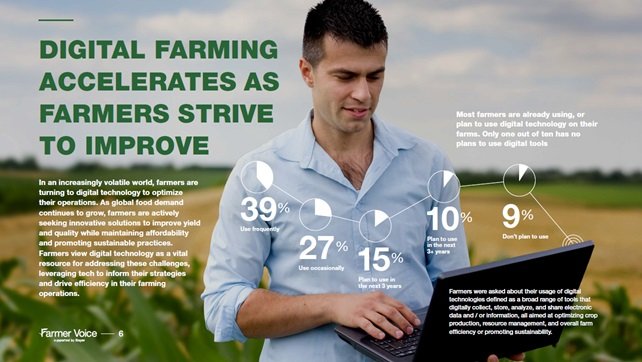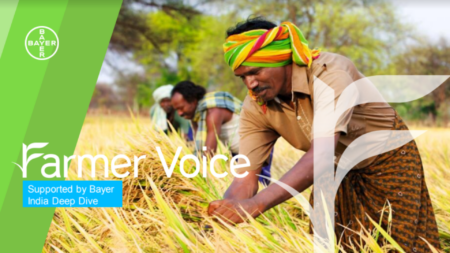75% of farmers are open to innovation to cope with climate change: 2024 Farmer Voice survey
2024 Farmer Voice survey, a study among 2,000 farmers across Australia, Brazil, China, Germany, India, Kenya, Ukraine, and the United States, conducted by global market research firm Kynetec on behalf of Bayer.
75 per cent of farmers are already impacted by climate change or worried about its impacts, and 71 percent of them report reduced yields as a major concern. 6 out of 10 have already experienced significant revenue loss due to weather events out of the norm recently. As part of the solution, farmers count on innovation: 75 percent are open to implementing new technologies to better cope with climate change. Desire for better yields, resilient farms, and protected livelihoods are driving interest and adoption of more regenerative and technological approaches to farming.
These are some of the key findings from the 2024 Farmer Voice survey, a study among 2,000 farmers across Australia, Brazil, China, Germany, India, Kenya, Ukraine, and the United States, conducted by global market research firm Kynetec on behalf of Bayer. It reveals the challenges, aspirations, and needs of farmers in times of climate change, digitalization, and economic and political volatility.
Rodrigo Santos, Member of the Board of Management of Bayer AG and President of the Crop Science Division, said: “The Farmer Voice study underlines that farmers continue to face accelerating economic and environmental challenges in their important work – providing food to the world. They want innovation to help them do their jobs better, and an environment in which they can increasingly turn towards regenerative practices making food systems more resilient – to the benefit of the planet, food security, and their livelihoods alike.”
In addition to the global Farmer Voice research, a separate survey was fielded with 1,450 smallholder farmers in India and Indonesia by Q&Q Research Insights, based on a similar questionnaire. The data from that study reveals that farmers in both countries are grappling with input costs, while also facing growing challenges posed by climate change. For Indian smallholders, an increased threat of crop damage from pests, diseases and weeds is their most cited near-term challenge (41 per cent). For Indonesian smallholders, fertilizer costs ranked as their top challenge (73 per cent).
Farmers in both countries are employing some regenerative agricultural practices so far, with about 80 percent of respondents indicating that they use at least one regenerative practice on their farms. Indian farmers use on average between 4 and 5 such practices, while Indonesian farmers are using between 2 and 3 on average. In both countries, a lack of knowledge as well as financial resources are cited among the main barriers to adopt more regenerative practices, although there is strong interest to do so.
Despite all challenges smallholder farmers in India and Indonesia maintain a positive mindset. 89 percent in India and 91 percent in Indonesia consider farming to be a valuable career, taking pride in their role in ensuring food security.
2024 Farmer Voice survey, a study among




